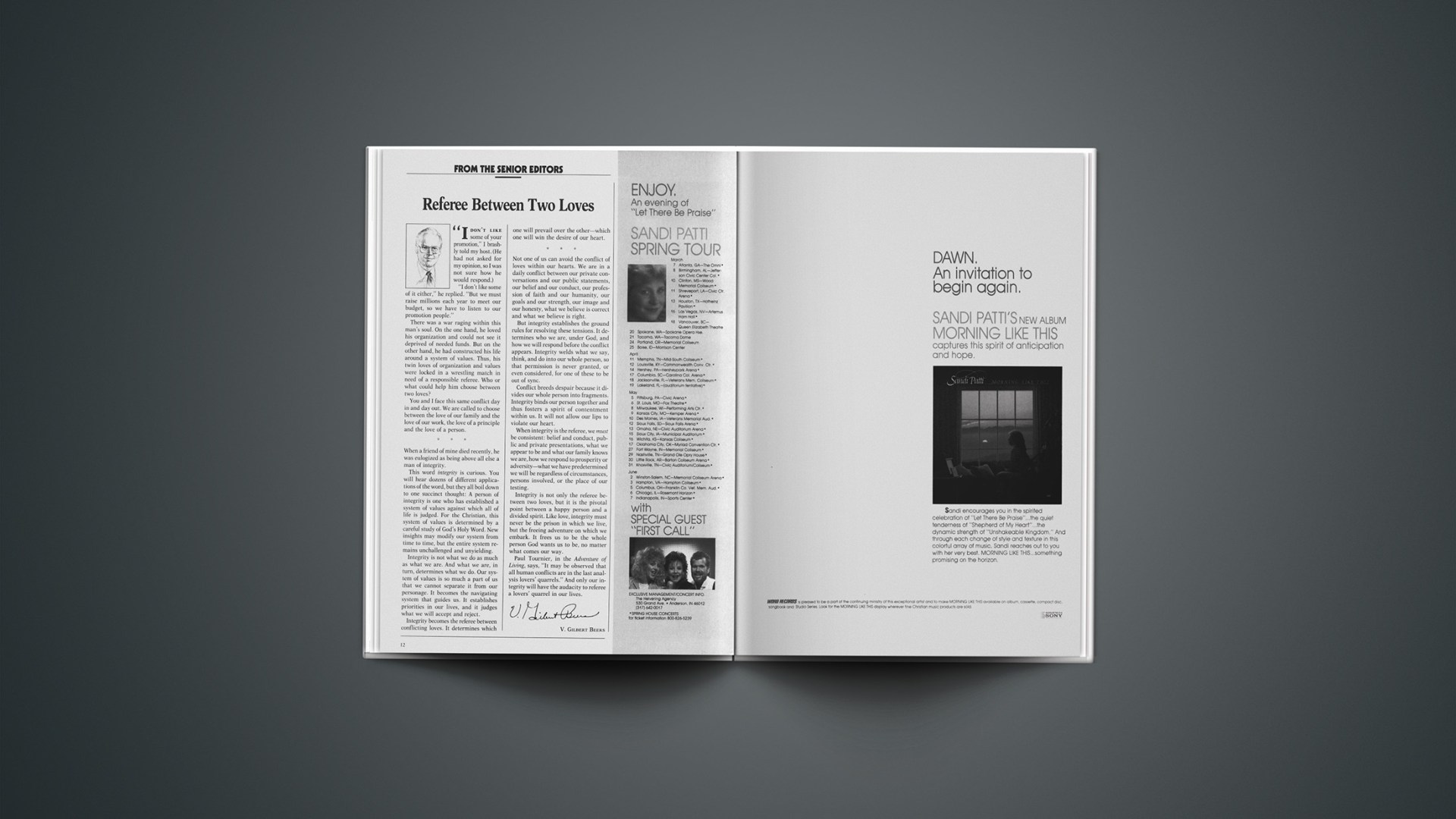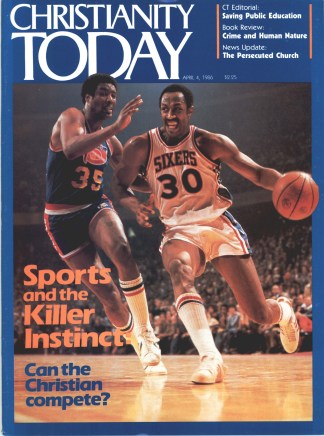“I don’t like some of your promotion,” I brashly told my host. (He had not asked for my opinion, so I was not sure how he would respond.)
“I don’t like some of it either,” he replied. “But we must raise millions each year to meet our budget, so we have to listen to our promotion people.”
There was a war raging within this man’s soul. On the one hand, he loved his organization and could not see it deprived of needed funds. But on the other hand, he had constructed his life around a system of values. Thus, his twin loves of organization and values were locked in a wrestling match in need of a responsible referee. Who or what could help him choose between two loves?
You and I face this same conflict day in and day out. We are called to choose between the love of our family and the love of our work, the love of a principle and the love of a person.
When a friend of mine died recently, he was eulogized as being above all else a man of integrity.
This word integrity is curious. You will hear dozens of different applications of the word, but they all boil down to one succinct thought: A person of integrity is one who has established a system of values against which all of life is judged. For the Christian, this system of values is determined by a careful study of God’s Holy Word. New insights may modify our system from time to time, but the entire system remains unchallenged and unyielding.
Integrity is not what we do as much as what we are. And what we are, in turn, determines what we do. Our system of values is so much a part of us that we cannot separate it from our personage. It becomes the navigating system that guides us. It establishes priorities in our lives, and it judges what we will accept and reject.
Integrity becomes the referee between conflicting loves. It determines which one will prevail over the other—which one will win the desire of our heart.
Not one of us can avoid the conflict of loves within our hearts. We are in a daily conflict between our private conversations and our public statements, our belief and our conduct, our profession of faith and our humanity, our goals and our strength, our image and our honesty, what we believe is correct and what we believe is right.
But integrity establishes the ground rules for resolving these tensions. It determines who we are, under God, and how we will respond before the conflict appears. Integrity welds what we say, think, and do into our whole person, so that permission is never granted, or even considered, for one of these to be out of sync.
Conflict breeds despair because it divides our whole person into fragments. Integrity binds our person together and thus fosters a spirit of contentment within us. It will not allow our lips to violate our heart.
When integrity is the referee, we must be consistent: belief and conduct, public and private presentations, what we appear to be and what our family knows we are, how we respond to prosperity or adversity—what we have predetermined we will be regardless of circumstances, persons involved, or the place of our testing.
Integrity is not only the referee between two loves, but it is the pivotal point between a happy person and a divided spirit. Like love, integrity must never be the prison in which we live, but the freeing adventure on which we embark. It frees us to be the whole person God wants us to be, no matter what comes our way.
Paul Tournier, in the Adventure of Living, says, “It may be observed that all human conflicts are in the last analysis lovers’ quarrels.” And only our integrity will have the audacity to referee a lovers’ quarrel in our lives.










